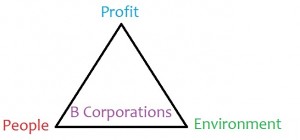This article explores the issue of the Eurozone talked about in lecture seven.
Greece, a country in great debt recently receives a Euros bailout loan and is now in need for “another 10.9 billion Euros” loan writes The Associated Press on September 26, 2011. With the issue of the Eurozone, many individuals believe Greece may possibly become defaulted.
The article “Greece budget is ‘exhausted’: Official” is issued by The Associated Press in the September 29th issue of the Vancouver Metro News. Greece’s deputy prime minister announced Greece’s inability “to pay a new emergency tax without selling property” (Metro News). As a result, the country’s parliament has implemented a new property tax that will be added onto citizens’ electricity bills; hence, many property-owners are now considering selling their homes. The parliament’s declaration has also outraged many citizens. The article reveals many Greeks, including “customs and tax-office workers” are now going on strike to demonstrate their discontent (Metro News). The important problem many people, including economists question about is how Greece will resolve its debt problems and whether or not Greece will become defaulted.
The original article can be found in the September 29th, 2011 issue of the Vancouver Metro News.

